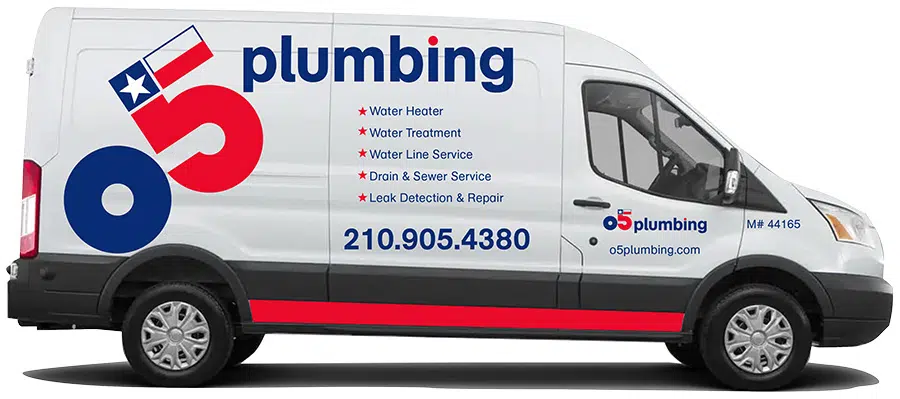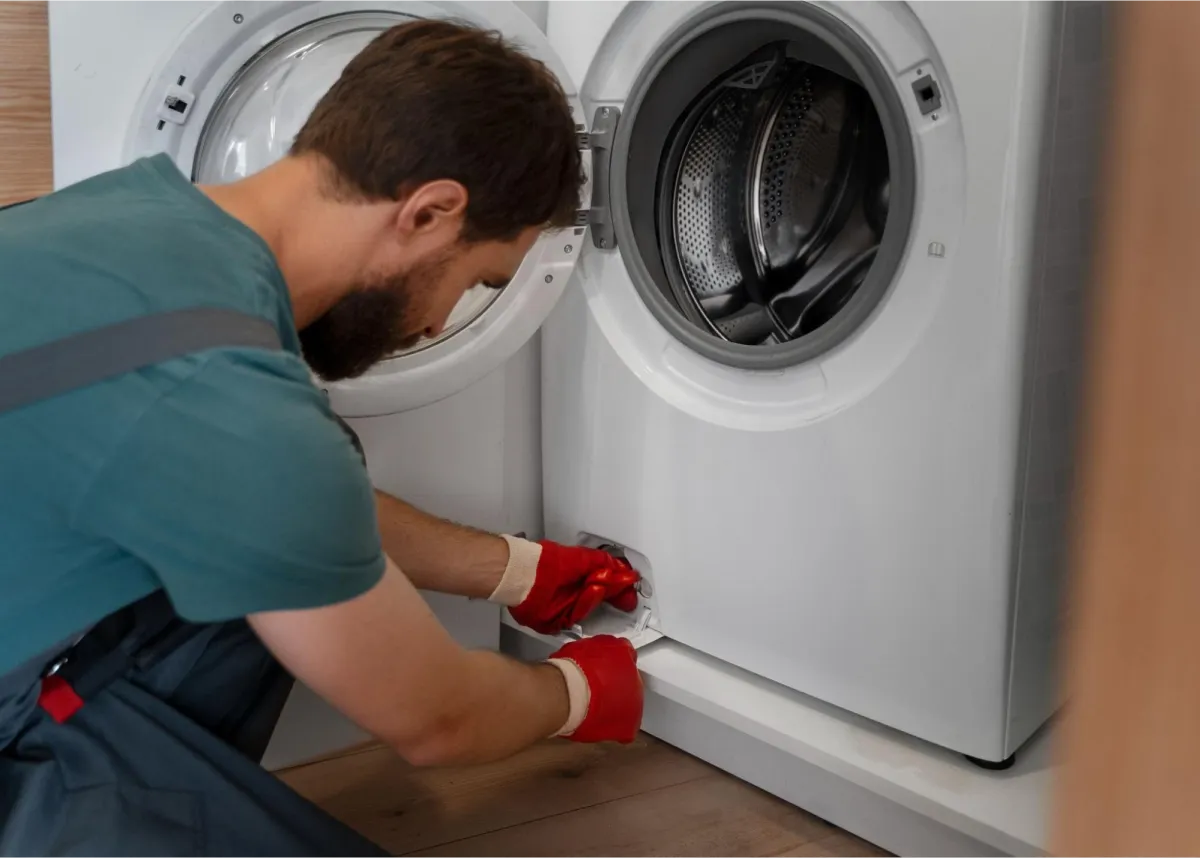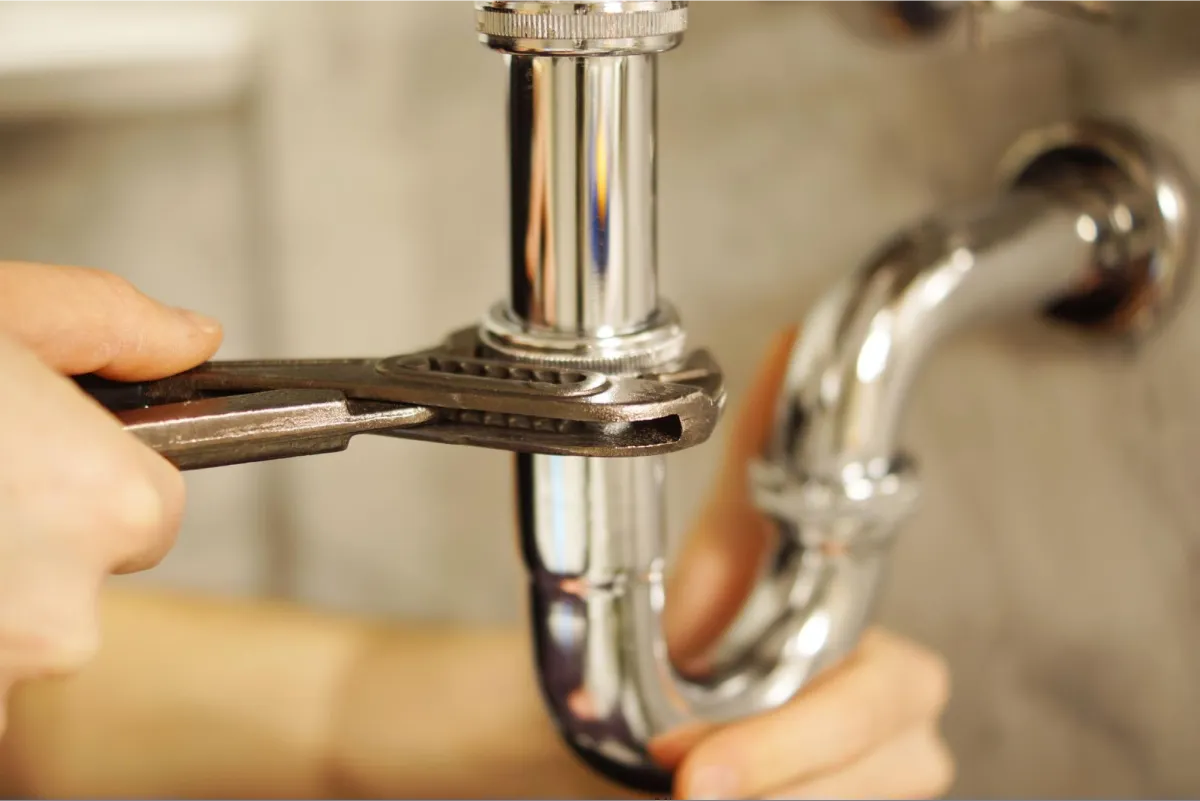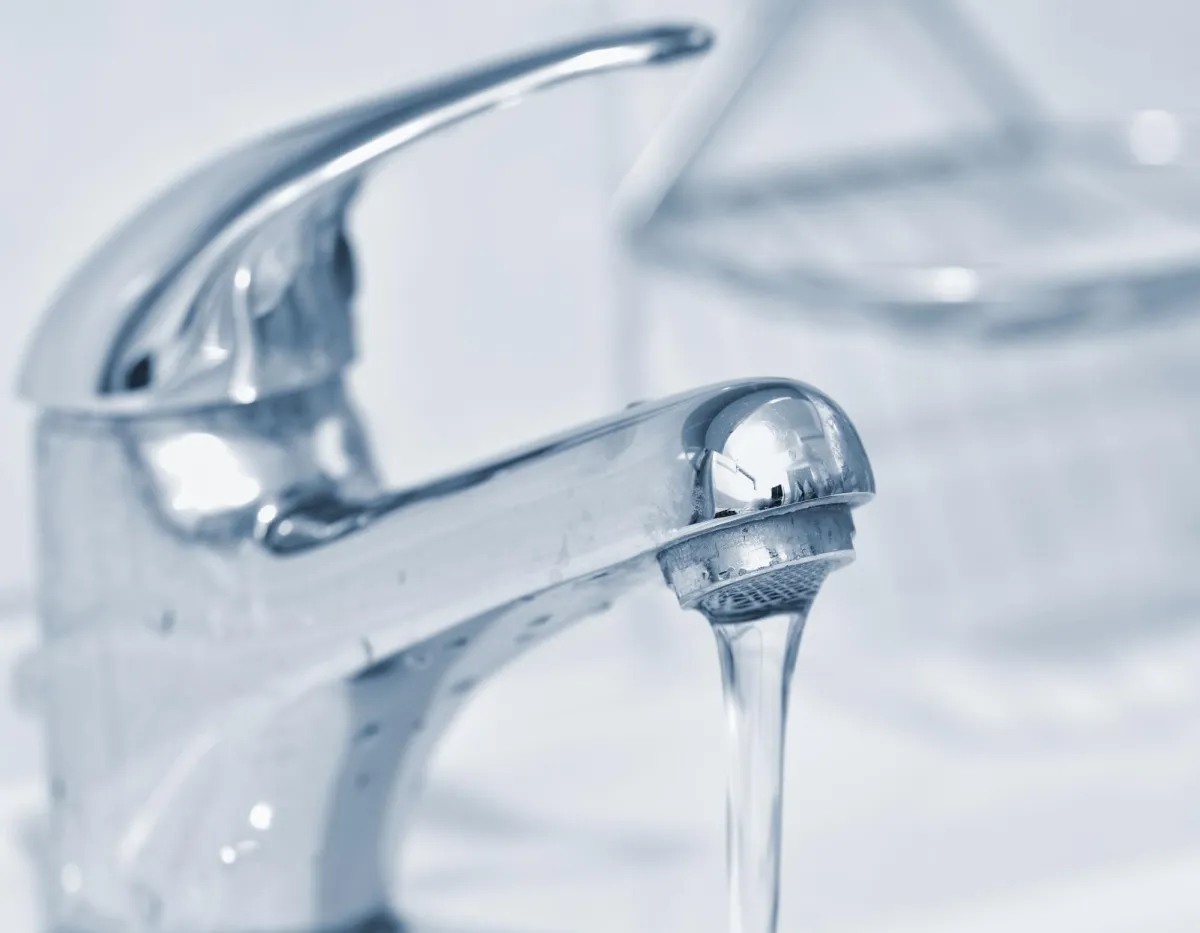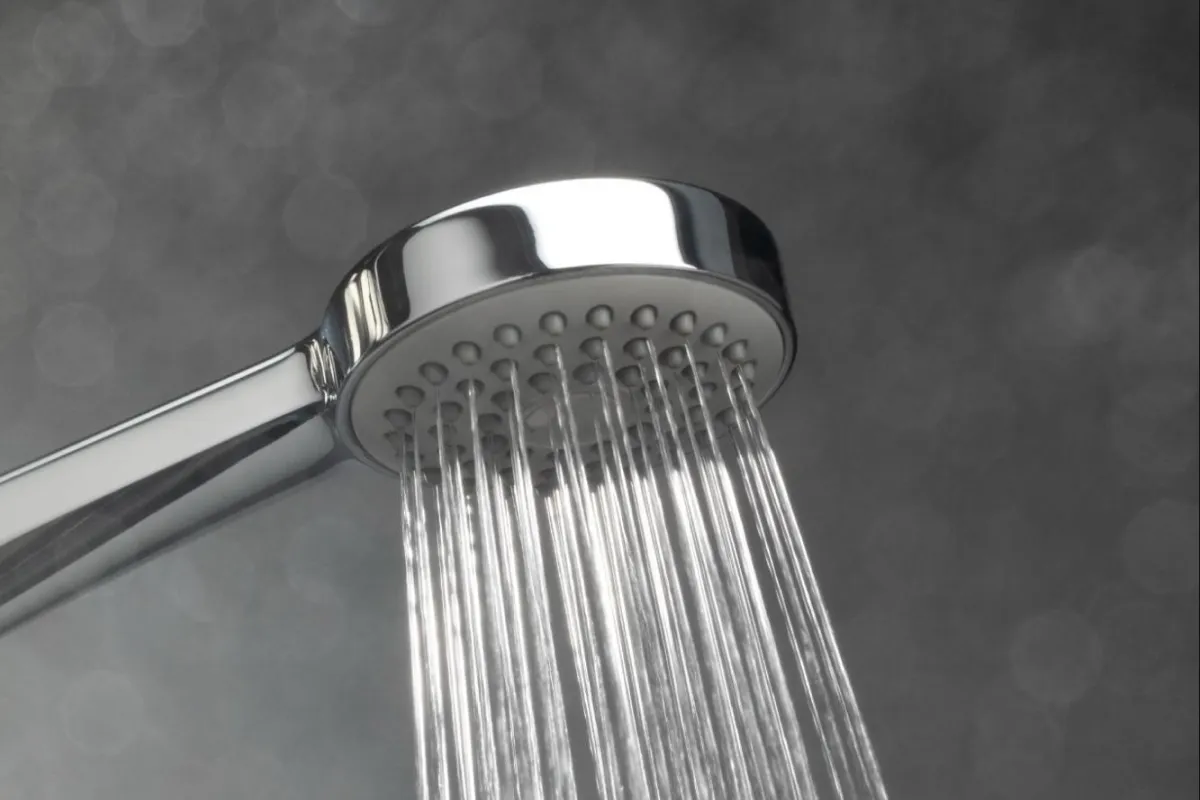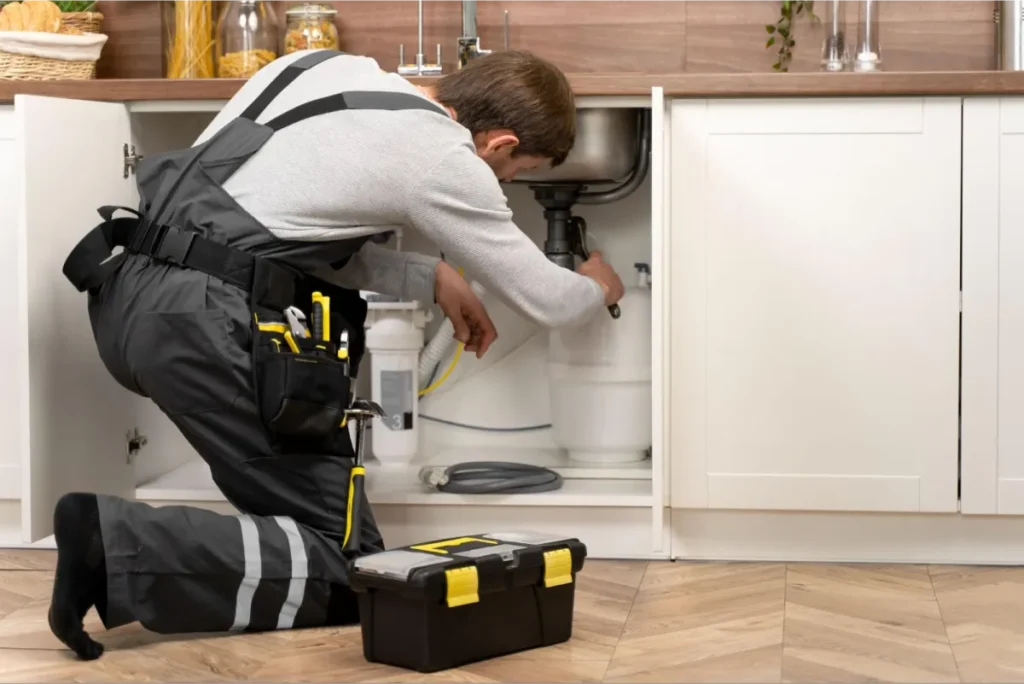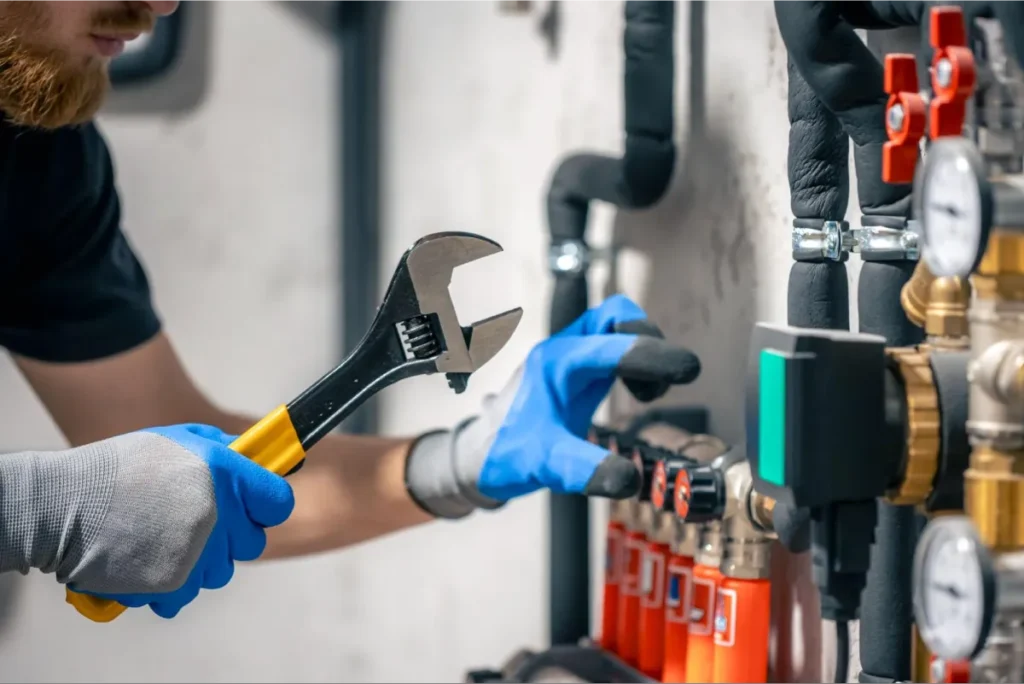
Major appliances like dishwashers, refrigerators, washers, and dryers can get pricey to repair. Replacing them costs even more. Your household’s essential equipment might cost as much as your car or even more. This makes investing time in proper care a smart financial decision.
At o5 Plumbing, we’ve seen a wide range of appliance-related issues and know how to spot the warning signs before they turn into expensive emergencies. A detailed preventative maintenance plan helps avoid those unexpected breakdowns that always seem to happen at the worst times. Simple repair tips and a consistent maintenance checklist keep your plumbing-related appliances running smoothly. Better care means fewer headaches and more savings.
Water Heater Maintenance Tips from the Pros
Your water heater works behind the scenes every day, often unnoticed until a problem appears. Our team of plumbers know your home’s vital appliance needs regular care to work well over time. While water heaters usually last 8-12 years, good maintenance helps them run longer and keeps energy bills lower.
Flush the tank annually to remove sediment
Sediment collecting at your water heater’s bottom quietly kills its efficiency. Minerals and debris build up and create a layer between the heating element and water. The sediment can also eat away at the tank’s inner lining, which might lead to early failure.
You should flush your water heater tank at least once a year. People living in areas with hard water might need to do this two to four times yearly. The job involves shutting off power, hooking up a garden hose to drain the valve, and letting several gallons flow until clear water appears. This basic maintenance stops sediment from hardening and damaging the tank’s protective coating.
Check the anode rod
Your water heater’s sacrificial anode rod might be the most forgotten part of home maintenance. This magnesium or aluminum rod hangs inside your steel tank and draws in corrosive elements that would damage the tank.
You should look at the anode rod every 2-3 years. The rod needs replacement if it looks worn down, shows its core wire, or has too much calcium buildup. Plumbers point out that a new anode rod costs nowhere near as much as a new water heater. Most people replace it every three to five years, depending on their water quality and usage.
Inspect for leaks around the base
Checking for leaks regularly helps prevent bigger problems. Look for water pooling near your water heater’s base, it’s often the first sign of trouble.
Your inspection should cover all fittings and connections for any loose parts or wear. The drain valve needs extra attention since it might just need tightening if it leaks. Signs of rust or damage on valves, connections, and the tank deserve immediate attention. Catching these issues early can save you from expensive emergency repairs, and if you spot something concerning, o5 Plumbing is ready to provide fast, reliable water heater repair services.
Set the thermostat to 120°F for safety and efficiency
Manufacturers often set water heater thermostats to 140°F, but most homes work fine at 120°F. This lower setting brings several benefits. The risk of scalding drops substantially, especially important if you have kids or older adults at home. Water at 140°F can cause severe burns in just five seconds.
Your energy bills could drop by 4-22% at 120°F, saving up to $400 each year. Lower temperatures also slow down mineral buildup and corrosion in your heater and pipes, which helps them last longer.
Dishwasher Care to Prevent Plumbing Issues
A well-maintained dishwasher keeps your dishes sparkling while also protecting your home’s plumbing system from unnecessary stress and damage. Our local plumbers often see problems that regular maintenance could have prevented.
Clean the filter weekly to avoid clogs
Your dishwasher’s filter catches food bits and debris that might end up back on clean dishes or clog your plumbing. You’ll find most filters at the bottom of the dishwasher tub, right under the lower spray arm. The filter needs monthly cleaning if you run 8-12 loads without pre-rinsing dishes. Here’s how to clean the filter.
- Remove the bottom rack to access the filter
- Twist and lift to remove it from the base
- Hand wash with warm, soapy water
- Use a soft brush to remove stubborn residue
- Rinse well before reinstalling
Skipping this vital maintenance task can result in clogs, dirty dishes, and bad smells.
Run vinegar rinse cycles monthly
Mineral deposits and soap scum build up inside your dishwasher even with regular filter cleaning. A monthly deep clean stops these residues from hurting performance and damaging plumbing connections.
Put a dishwasher-safe container with one cup of white vinegar on the top rack and run a hot water cycle. This simple trick breaks down grease, food particles, and mineral buildup that might cause drainage problems. You can add baking soda to the vinegar solution to tackle really tough buildup.
Inspect the water inlet valve for buildup
The water inlet valve manages water flow into your dishwasher. You might have valve problems if you notice leaks when the machine is off, not enough water during cycles, or strange noises while filling. Debris can also clog the valve and stop it from working right.
Make checking this important part a regular task in your home maintenance routine, just remember to turn off power and water supplies first. You can clean visible debris, but leave valve disassembly to the professionals.
Check for leaks under the unit
Dishwashers usually give warning signs through small leaks before major plumbing emergencies happen. Put towels around the base to stay safe while you check. The door gasket might need replacement if you spot tears or wear.
Your dishwasher should sit perfectly level, you can check this with a carpenter’s level across the bottom rack rails. An uneven dishwasher can cause water distribution problems and leaks. Regular checks under the appliance help catch small issues before they get pricey to fix.
Washing Machine Habits That Extend Lifespan
Your washing machine faces mechanical stress with each load, so proper maintenance helps it last a lot longer. These simple habits will prevent costly repairs and extend your machine’s life.
Avoid overloading the drum
Overloading your washing machine creates several problems. Stuffing too many clothes leaves no space for proper tumbling and clothes won’t get clean. The motor and mechanical components face extra strain that could lead to early failure.
The palm test helps you check if your load size works. Place your hand into the drum between clothes and the wall. A comfortable fit means your load size works perfectly. Remove some items if your hand doesn’t fit. This simple test ensures your clothes have enough space to move and get clean.
Use the right type and amount of detergent
More detergent doesn’t mean cleaner clothes. Extra detergent leaves residue that attracts dirt instead of removing it. Most loads need about 2 tablespoons of liquid detergent.
High-efficiency washers need special high efficiency detergents because they use less water. Use smaller amounts since too many suds can trap bacteria and dirt. The right amount of detergent keeps both your clothes and machine free from buildup.
Leave the door open to prevent mold
Let your machine’s door stay slightly open after each wash cycle. Air circulation prevents trapped moisture that causes mold and mildew growth.
Front-loading machines need this care because their tight door seals make them prone to mold. Take wet clothes out quickly to stop moisture from staying inside the drum.
Inspect hoses for cracks or bulges
Faulty washing machine hoses often cause severe water damage in homes. Check your hot and cold water supply hoses monthly for blisters, bubbles, cracks, or color changes.
Replace worn hoses right away since most breaks happen where the hose bends. Replace all washing machine hoses every 3-5 years whatever their condition. Stainless steel braided hoses resist bursting better than rubber ones, making them a smart upgrade.
Water Filtration System Care Tips
Water filtration systems work quietly in the background, but neglecting them can lead to costly plumbing issues and reduced water quality. Regular upkeep ensures your system runs efficiently and continues providing clean water for your home.
Replace filters on schedule
Your system’s filters trap sediment, minerals, and contaminants. Over time, they clog and slow water flow. Check your manufacturer’s guidelines and replace filters as recommended, often every 3 to 6 months for standard units.
Skipping replacements forces the system to work harder and can allow impurities into your water.
Inspect for leaks and wear
Look over all fittings, hoses, and housings regularly for signs of leaks, cracks, or loose connections. Even a small drip near your filtration unit can signal a bigger problem. Catching early prevents water damage and helps your system stay reliable. If you find a leak, don’t worry, o5 Plumbing is ready to fix the issue. We offer reliable water filtration system repair services.
Sanitize the system annually
Mineral buildup, bacteria, and mold can develop inside filter housings over time. Once a year, follow your manufacturer’s instructions for sanitizing the system. This step keeps water fresh and prevents contaminants from bypassing the filter.
Flush the system after maintenance
Whenever you replace filters or clean the unit, run water through the system for a few minutes before drinking. This clears out any trapped air, loose particles, or cleaning solution and helps your water taste its best.
Conclusion
Basic maintenance can make a huge difference in your home’s appliances. These easy habits take little time but shield your plumbing system and appliances from damage that could cost thousands to fix.
Your best defense against sudden breakdowns starts with regular maintenance. Flushing your water heater once a year stops sediment buildup. A monthly check of washing machine hoses helps prevent water damage that could be catastrophic. The dishwasher’s filter needs weekly cleaning to avoid clogs that lead to emergency calls.
The best part? These maintenance tasks don’t need special skills or tools. You can easily work them into your household routine. A simple calendar reminder will keep you on track even with a packed schedule.
If you ever run into problems with your appliances or need help keeping them in top shape, o5 Plumbing is here to help. Our team can handle everything from bathroom leak repairs to water heater installations. We work with a variety of plumbing-related appliances, making sure they run efficiently and safely. When maintenance feels overwhelming or a repair can’t wait, you can count on us for fast, reliable service. Contact us today to learn more.
Home Appliance Maintenance FAQs
How often should I flush my water heater?
It’s recommended to flush your water heater annually to remove sediment buildup. If you live in an area with hard water, you may need to do this more frequently, about two to four times a year.
What’s the ideal temperature setting for a water heater?
The ideal temperature setting for most households is 120°F (49°C). This temperature is safe, efficient, and can help reduce energy costs while also slowing down mineral buildup and corrosion in your water heater and pipes.
How can I prevent mold in my washing machine?
To prevent mold growth, leave the washing machine door slightly open after each use. This allows air circulation and prevents moisture retention. It’s particularly important for front-loading machines, which are more prone to mold issues due to their tight door seals.
What should I avoid putting in my garbage disposal?
Avoid putting fibrous foods like celery or corn husks, starchy foods such as pasta or potato peels, and items like coffee grounds or eggshells in your garbage disposal. These can cause clogs or damage the unit.
How often should I clean my dishwasher filter?
For optimal performance, clean your dishwasher filter monthly if you run 8-12 loads without pre-rinsing dishes. Regular cleaning prevents clogs, ensures better cleaning performance, and helps avoid unpleasant odors.
CONTACT o5
